In the world of real estate, there are so many terms and phrases it can boggle the mind. 🤯 And agents tend to use a lot of “Realtor Speak” when communicating with clients.
We can’t help it. After so many years in the business, it’s just how we think and communicate with other professionals in the industry.
So forgive us for using our whacky terminology on you! To help out, below you will find many commonly used terms and real estate related definitions.
But if things aren’t clear or you still need answers to your questions, just reach out and we’ll be happy to help!
Welcome!
Welcome to our Frequently Asked Real Estate Questions page! Here you will find answers to some of the most common questions about buying and selling real estate.
Whether you are a first-time homebuyer or a seasoned investor, we have compiled a list of questions that can help you in your real estate journey.
Our goal is to provide you with the information you need to make informed decisions about your property.
If you have any additional questions, please don’t hesitate to contact us for more assistance. We look forward to helping you find the right property for your needs. Thank you for visiting!
Buying and Selling Real Estate
Are you looking to buy or sell a home?
If so, you may have a lot of questions about the real estate process. From finding the right property to understanding the paperwork involved, it can be overwhelming to navigate the real estate market.
To help make things easier, we’ve compiled a list of some of the most frequently asked real estate questions.
Whether you’re a first-time homebuyer or an experienced investor, these answers can help you get started on your real estate journey.
1. How do I find the right property for me?
The first step in finding the right property for you is to determine your budget and needs.
Consider the size of the home, location, and any special features you may want.
Once you have a better idea of what you’re looking for, start researching properties in your area.
You can search online, or contact a real estate agent for assistance.
2. What documents do I need to buy a home?
When buying a home, you’ll need to provide a few documents to your lender.
These include proof of income, bank statements, tax returns, and more.
Your lender will also require you to sign a purchase agreement, which outlines the terms of the sale.
Make sure to read through your purchase agreement carefully and ask questions if you don’t understand any of the language.
3. What is the process of selling a home?
Selling a home involves a few steps. First, you’ll need to list your property on the market and wait for offers.
Once you receive an offer, you’ll need to negotiate the terms with the buyer and sign a contract.
You’ll also need to complete the necessary paperwork and prepare the home for inspection.
After the inspection and appraisal are completed, you’ll need to close the sale and transfer the title.
4. What is the difference between renting and leasing?
The main difference between renting and leasing is the length of the agreement.
Renting typically requires a month-to-month agreement, while a lease is usually for a set period of time.
Renters are typically responsible for maintenance and repairs, while a landlord is usually responsible for these costs with a lease.
We hope this list of frequently asked real estate questions will be helpful as you navigate the real estate market.
If you have any additional questions, please contact a real estate professional for assistance.
Find the answers to your most asked questions about real estate. Click on the big + button to view the answer.
Financing
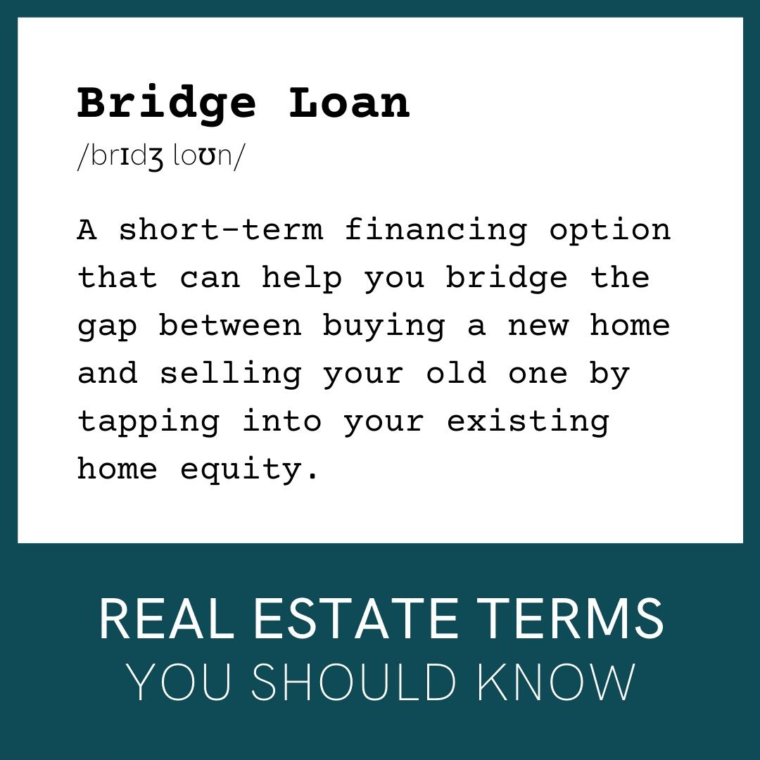
What is a bridge loan?
This short-term financing option can help you bridge the gap between buying a new home and selling your old one. It enables you to tap into your existing home equity before you’ve sold.
However, there are some issues to consider before you apply for a bridge loan:
👉 The interest rates and fees are usually higher than typical home loans.
👉 The equity from your current home will be used to secure the loan.
👉 The credit requirements are often greater for bridge loans than for standard financing.
If you think you may need to “bridge the gap” between buying a new home and selling your current one, give us a call. We can discuss your options and refer you to a lender who can help.
📲 925-628-2436
📩 info@guthriegrouphomes.com
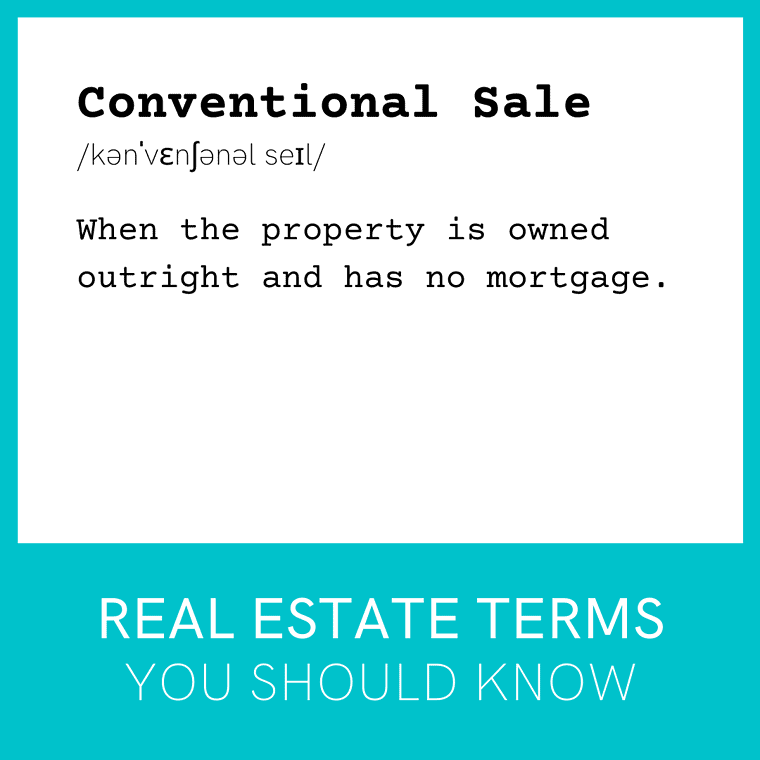
Conventional sale: When the property is owned outright and has no mortgage.
Conventional sales are often smoother transactions than those that require financing as there is no dependence on the buyer receiving a loan to purchase the property.
A conventional sale is not to be confused with a conventional loan. In this instance:
“Conventional” just means that the loan is not part of a specific government program. Conventional loans typically cost less than FHA loans but can be more difficult to get.
This may sound confusing, so just ask your Realtor to explain it to you if you’re not clear. ☺️
Leave a Reply
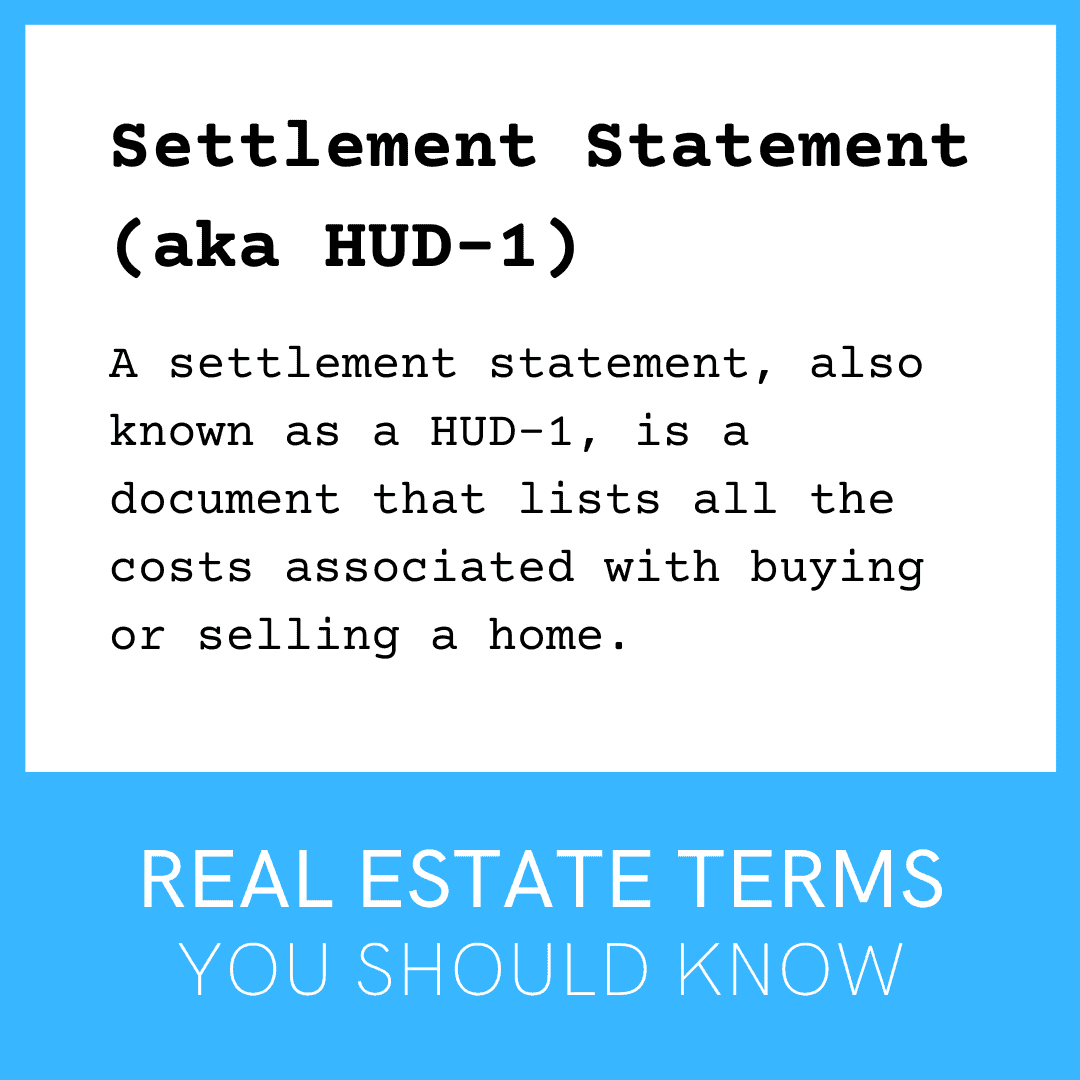
What is a Settlement Statement?
A settlement statement, also known as a HUD-1, is a document that lists all the costs associated with buying or selling a home.
It includes the purchase price, loan fees, taxes, insurance, and any other costs that need to be paid at closing.
This document will be given to the buyer and seller at the closing of the real estate transaction.
Really good agents will also send you a copy of your HUD-1 right before tax time to make sure you take advantage of any tax-deductible expenses from the purchase or sale of your home.
Leave a Reply
Home Buyers
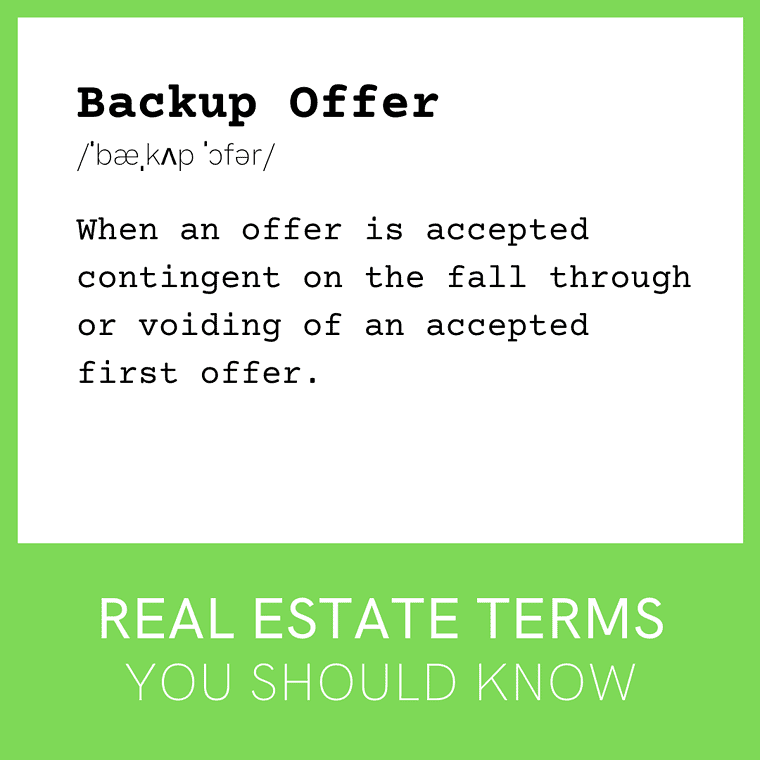
What is a backup offer?
When an offer is accepted contingent on the fall through or voiding of an accepted first offer.
Sellers may accept backup offers if they are not confident about the offer they have accepted.
Consider it a safety net for the seller if the current offer does not close.
There are also benefits for buyers.
Although it might seem like a long shot, putting an offer on a house that’s under contract actually has a reasonable chance of scoring you a home. Deals fall through for all kinds of reasons, so if you’re in the backup position, you’ll lock things in and keep a home from going back on the market.
As usual, discuss putting in a backup offer with your Realtor.
Leave a Reply
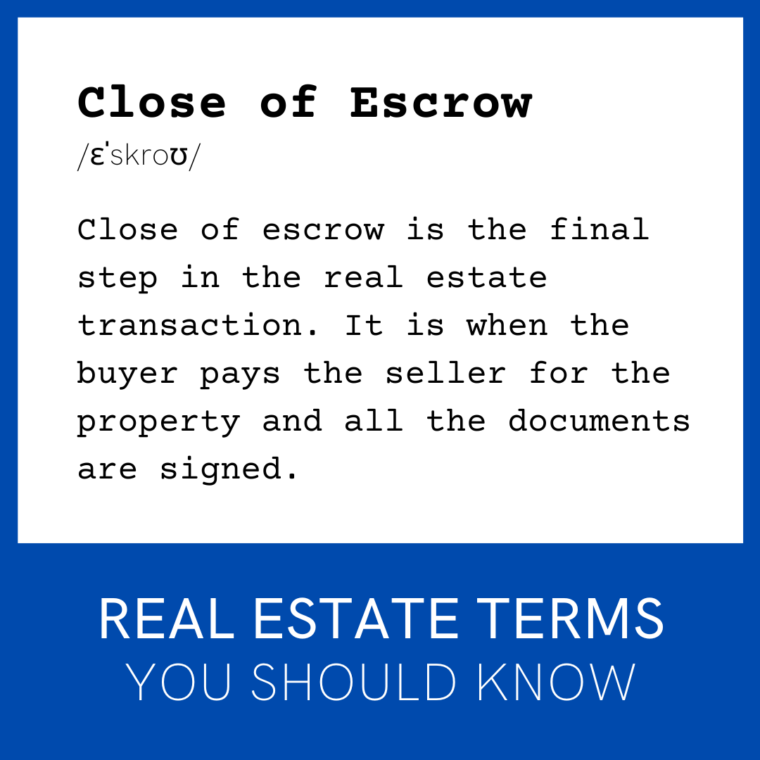
Close of escrow is the final step in the real estate transaction. It is when the buyer pays the seller for the property and all the documents are signed.
After close of escrow, the title deed is transferred to the new owner and the keys are given to the buyer.
The escrow company then sends the money to the lender and all the parties involved in the transaction.
Leave a Reply

Closing: The end of a transaction where documents are signed, and funds are dispersed.
Leave a Reply

In real estate, a contingent offer is an offer made on a property, which says that certain conditions must be met in order for the sale to be completed.
Leave a Reply
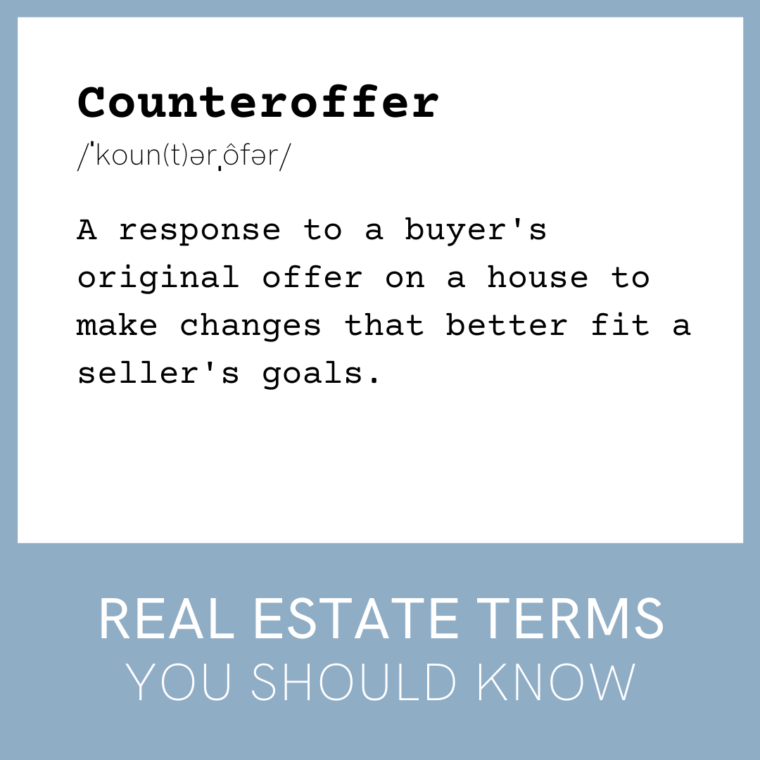
A counteroffer is a response to a buyer’s original offer on a house to make changes that better fit a seller’s goals.
A counteroffer is one step closer to an accepted offer!
A counteroffer shows that the seller is willing to work with the buyer, but on slightly different terms (usually a change in the price or contingencies).
Here’s how your real estate agent can help you navigate a counteroffer:
☑️ Buyers, we negotiate on your behalf and provide guidance on how to get your offer accepted.
☑️ Sellers, we help you stay clear of red flags and make sure you accept the right offer.
Negotiation is a BIG part of what we do as real estate pros! Connect with our team to learn more about how we provide 5-star representation for our clients.
Leave a Reply
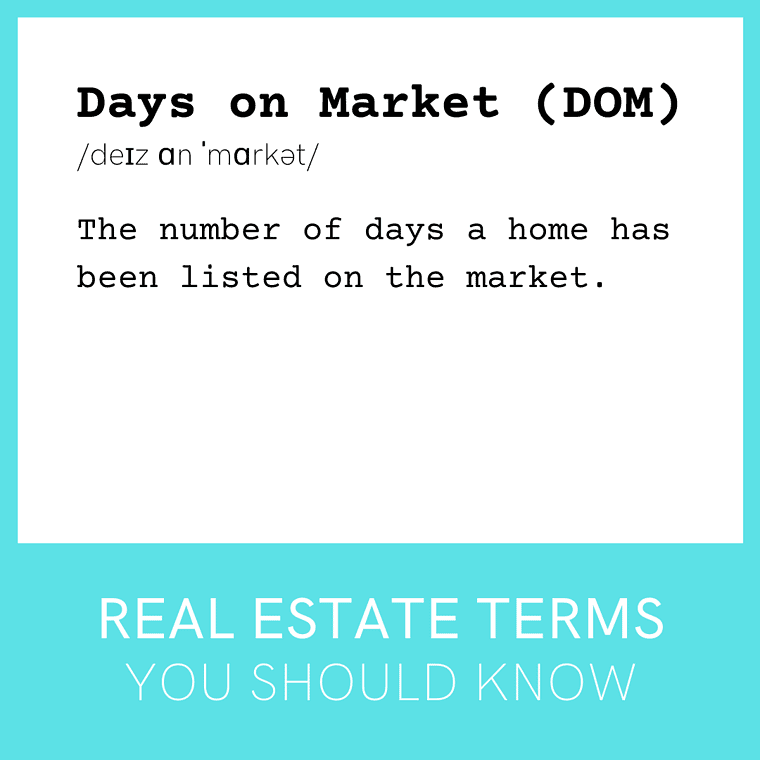
Days on market (DOM) means the number of days a home has been listed on the market.
The number of days the property has been on the market may reflect the desirability and/or pricing of the home.
If the home has been on the market too long, the property may be stale.
Leave a Reply
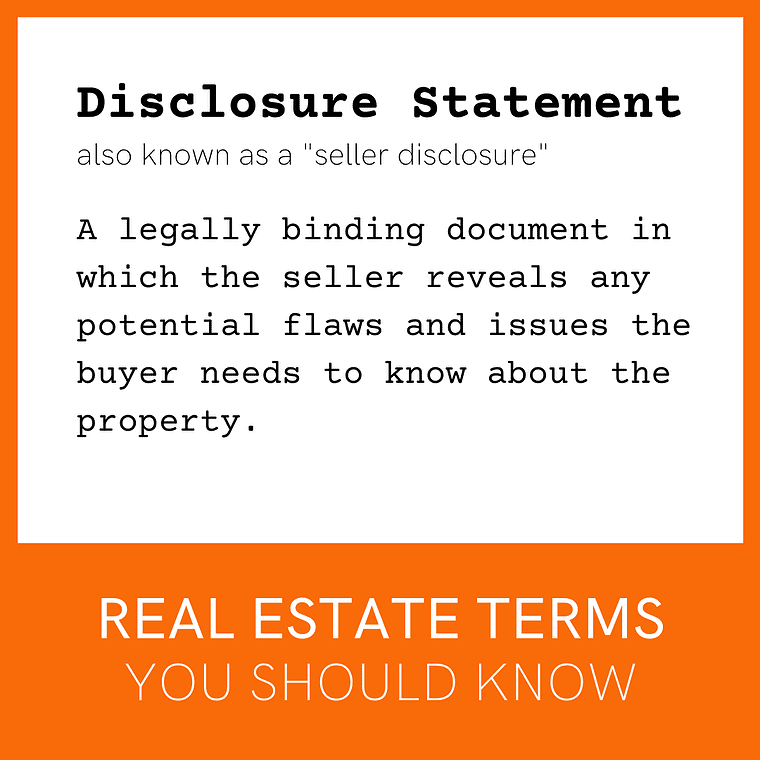
What is a Disclosure Statement 🤔
Also known as a “Seller’s Disclosure,” this is a legal document that outlines any known flaws that a home seller is aware of that could negatively impact the home’s value 🏡
💡 TIP: Buyers should scrutinize this document closely with their real estate agent to fully understand the condition of a home.
Our best advice? When it comes to buying a home, make sure you get an inspection to confirm what has been disclosed is accurate and discuss any potential deal breakers with your agent.
Contact our team for a ✨ free consultation ✨ to learn more about what you must legally disclose if selling and how to ensure you don’t miss any important information if you’re buying!
Leave a Reply
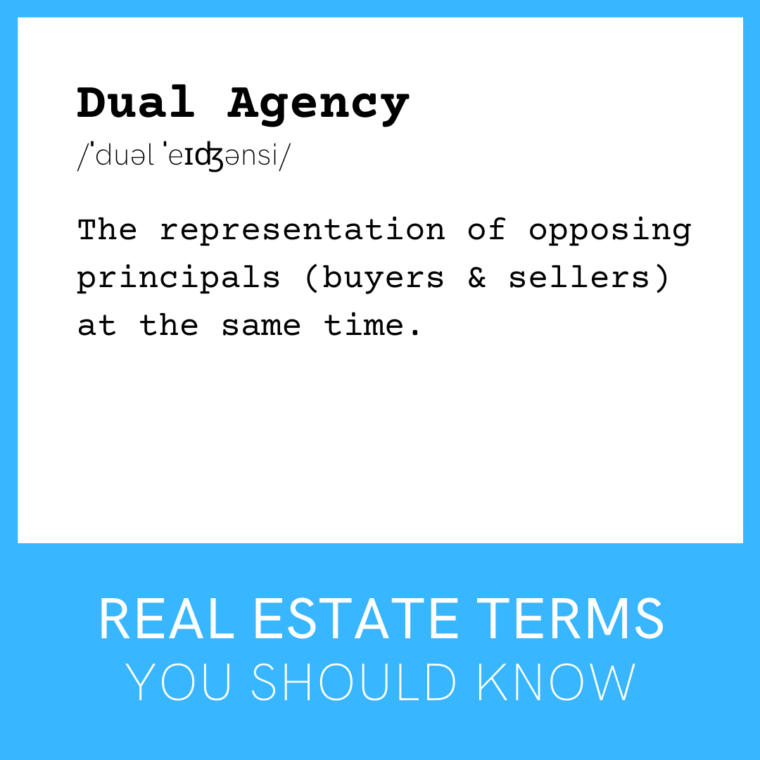
The representation of opposing principals (buyers & sellers) at the same time.
That is, one real estate agent represents both the buyer and the seller in one transaction (sale of a home).
Leave a Reply
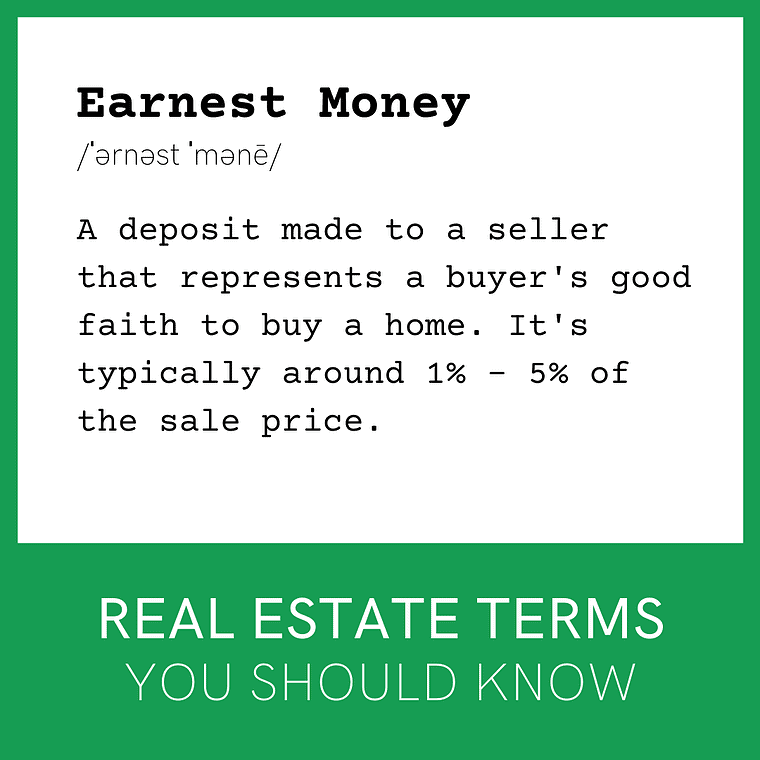
What is Earnest Money? 🤔
A deposit made to a seller that represents a buyer’s good faith to buy a home. It’s typically around 1% – 5% of the sale price.
Earnest money is a deposit from the buyer to the seller, made in good faith to show dedication to purchasing the property 🏡
IMPORTANT FACTS 👇
💰 The amount varies by market
💰 Goes towards the purchase of your home
💰 Protects the seller if a buyer backs out
💰 A buyer may get this money back – due to failed inspections or contingencies
💡 TIP: In a seller’s market, you may consider making your earnest money non-refundable.
Our best advice? When it comes to buying in a low inventory, competitive market, it’s essential to partner with a Buyer’s Agent who understands how to make your offer stand out to sellers 🥊
Leave a Reply
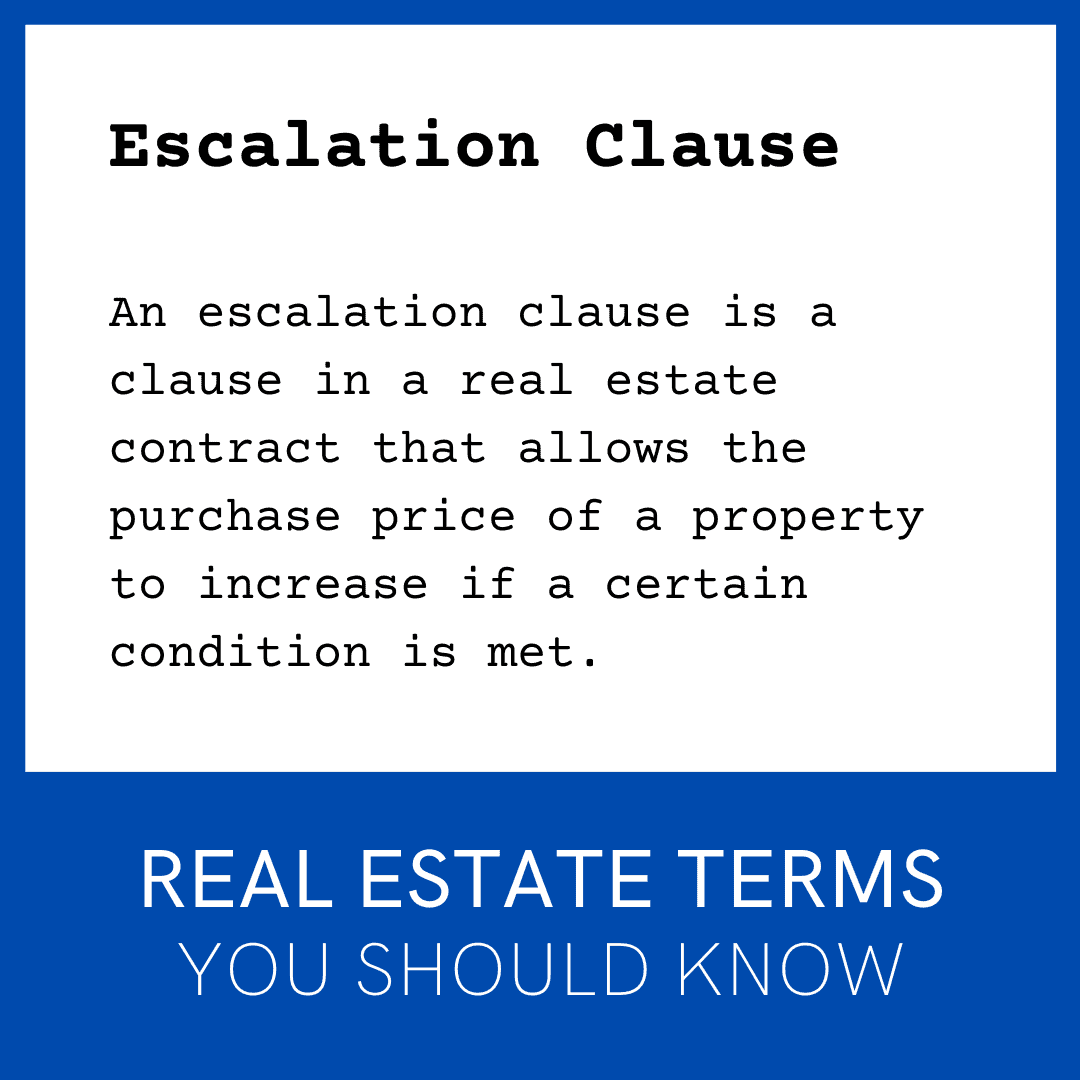
What is an escalation clause?
An escalation clause is a clause in a real estate contract that allows the purchase price of a property to increase if a certain condition is met.
For example, if the buyer and seller agree to an escalation clause and the market value of the property increases, the buyer will have to pay more for the property than originally agreed upon.
This clause is typically used when two buyers are competing to purchase the same property.
Leave a Reply
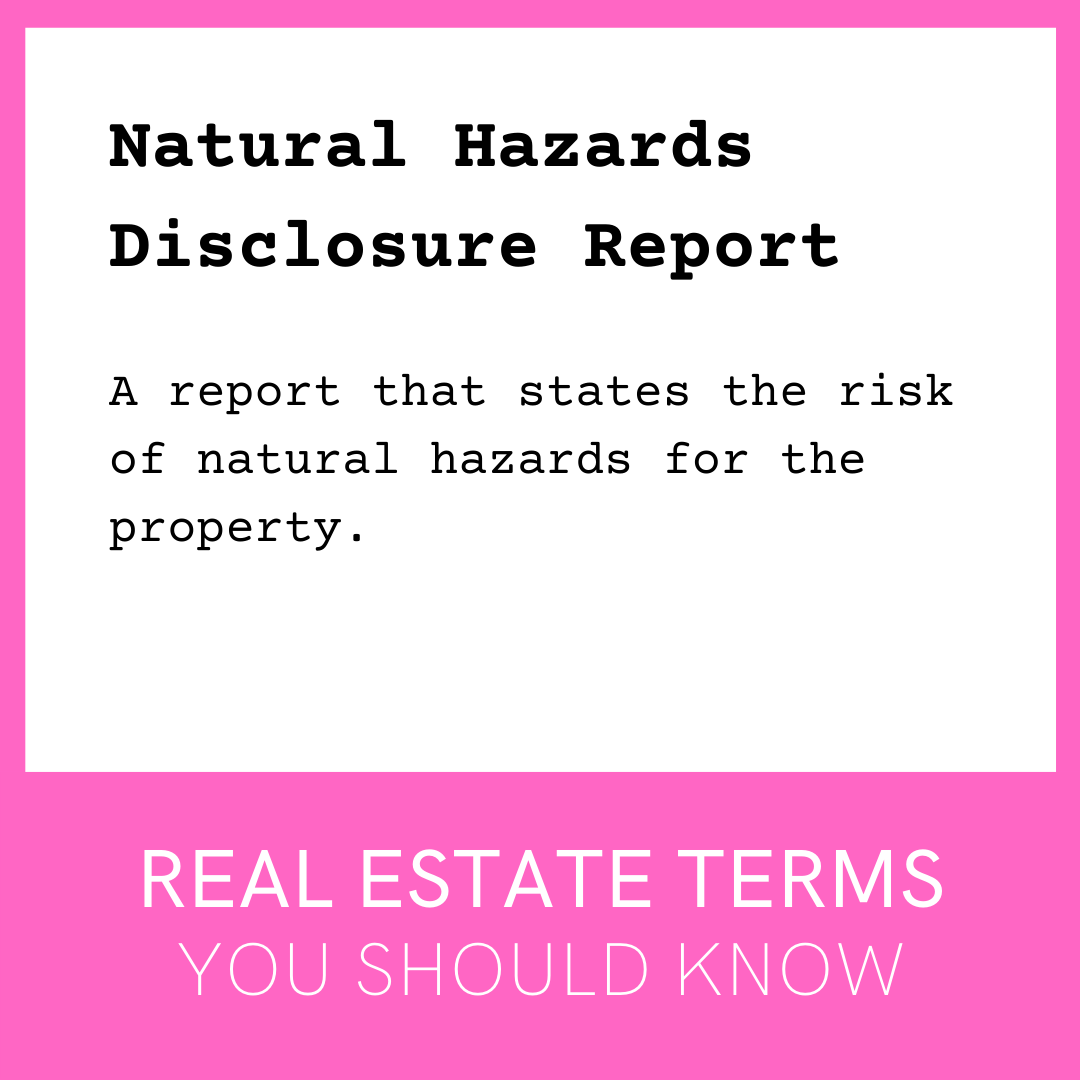
What are Natural Hazards Disclosure Reports?
Natural hazards disclosure reports are reports that tell potential buyers about any natural hazards near a property.
These hazards can include things like flooding, earthquakes, and wildfires.
The report will also include information about potential risks associated with these hazards and what the buyer can do to protect their property.
The report is usually provided by the seller before the sale is finalized.
Leave a Reply
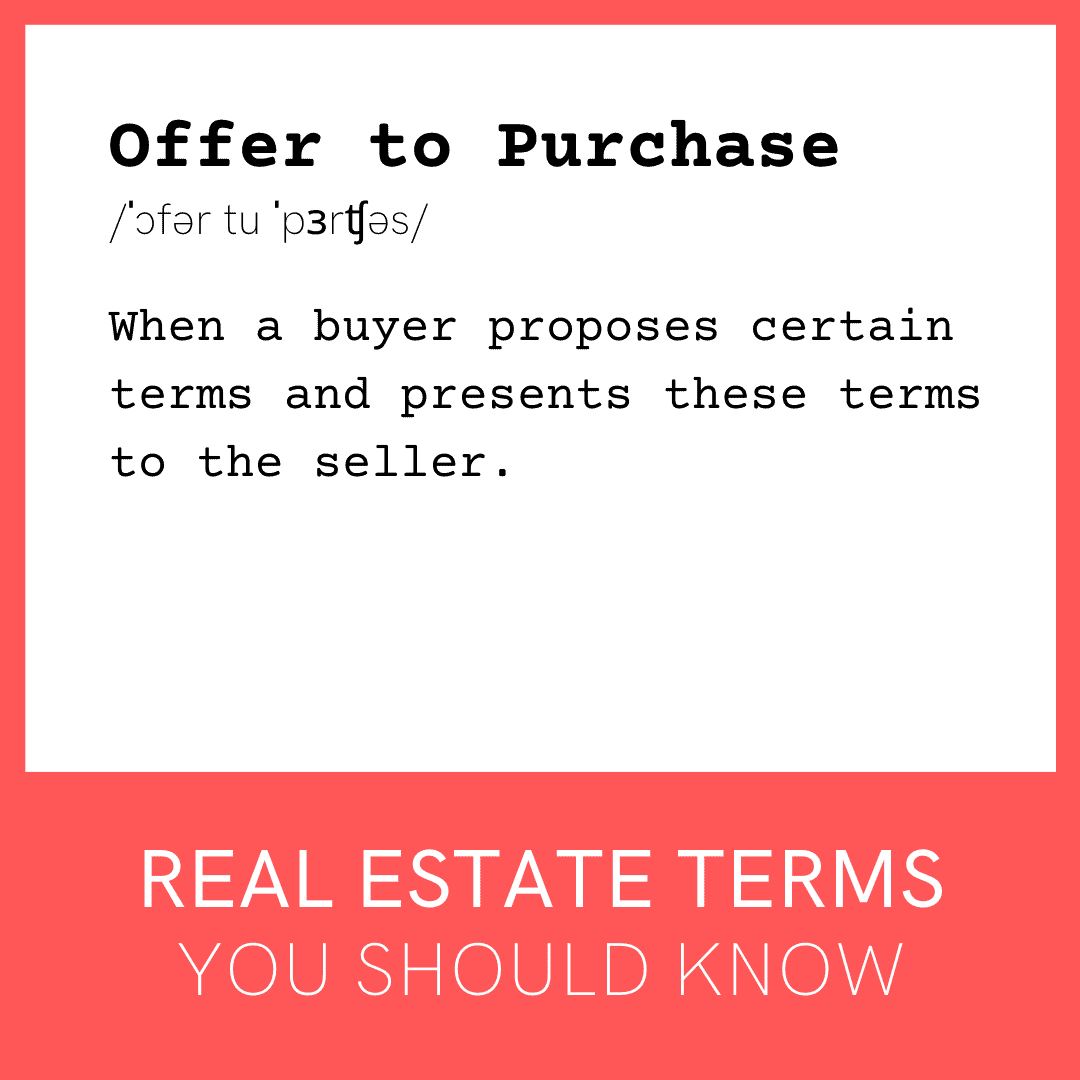
What is an offer to purchase?
Typically just an “offer”, is when a buyer proposes certain terms and presents these terms to the seller.
When you make an offer on a house, you and your agent will discuss the terms of your offer and submit the offer to the home seller’s agent.
Your offer may be accepted, or rejected, or the seller may submit a counteroffer.
Leave a Reply
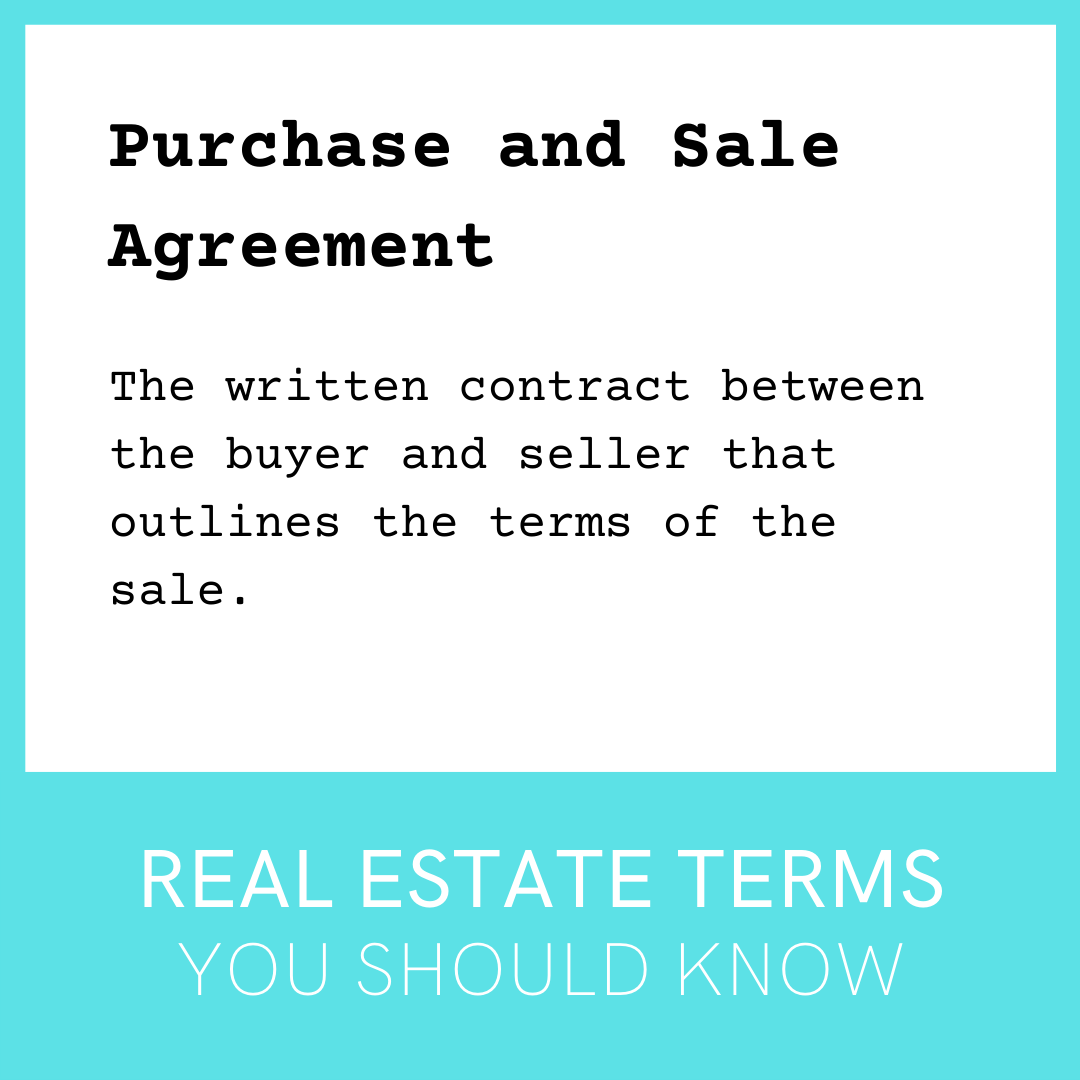
What is a Purchase and Sale Agreement?
Often just a “purchase agreement”, it is the written contract between the buyer and seller that outlines the terms of the sale.
The completion and signing of a purchase agreement effectively places both the buyer and seller (as well as the property in question) “under contract.”
Does a real estate purchase agreement need to be notarized?
No, a real estate purchase agreement does not require notarization to be valid as it is not filed with county records.
Leave a Reply
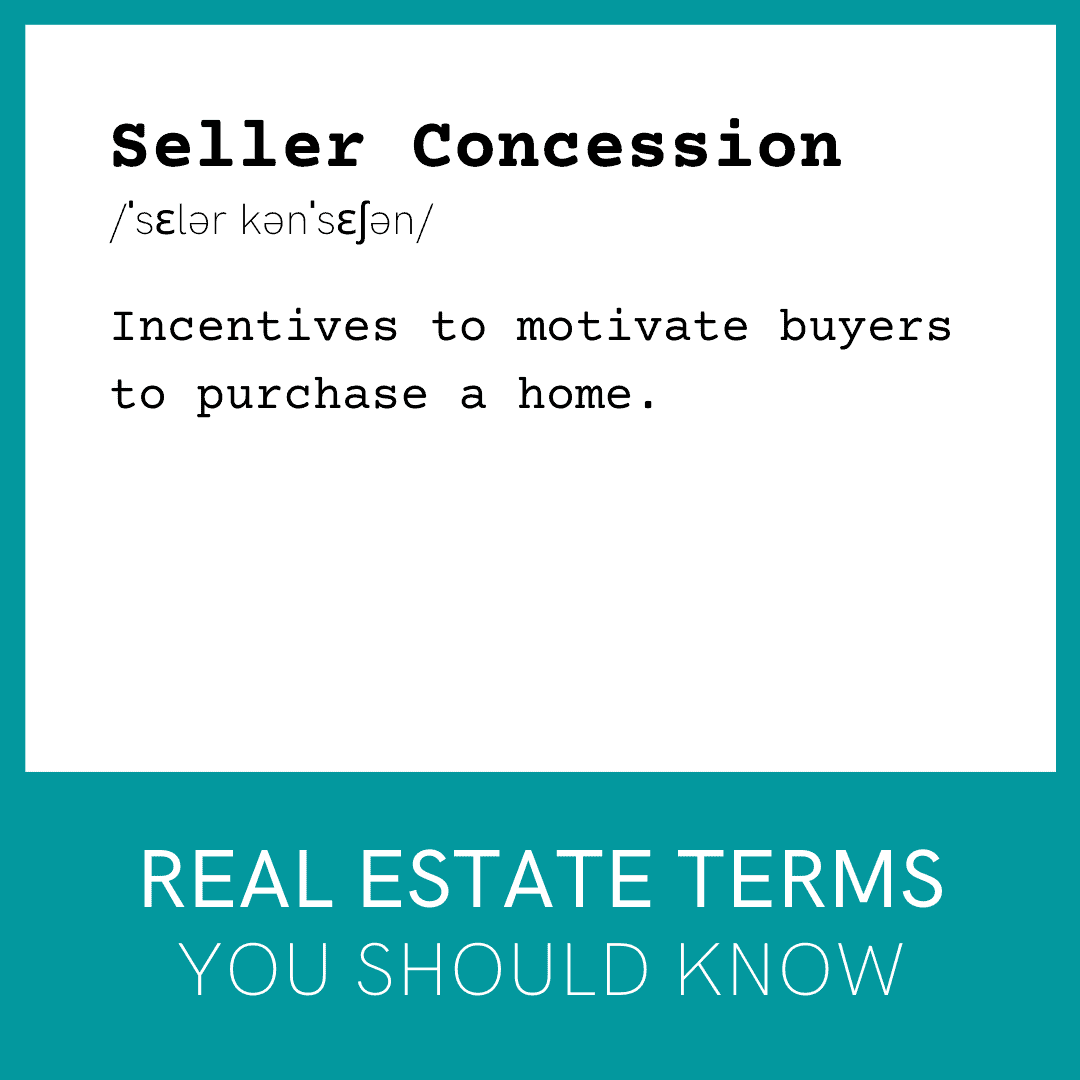
What are seller concessions?
They are incentives to motivate buyers to purchase a home.
Seller concessions, also known as seller contributions or seller-paid closing costs, refer to financial incentives that a home seller may offer to a homebuyer to help them cover some of the expenses associated with buying a home.
These concessions are typically negotiated as part of the sales contract and can take a variety of forms, such as paying for some or all of the buyer’s closing costs, providing a credit toward the buyer’s down payment, or offering to pay for repairs or improvements to the property.
Leave a Reply
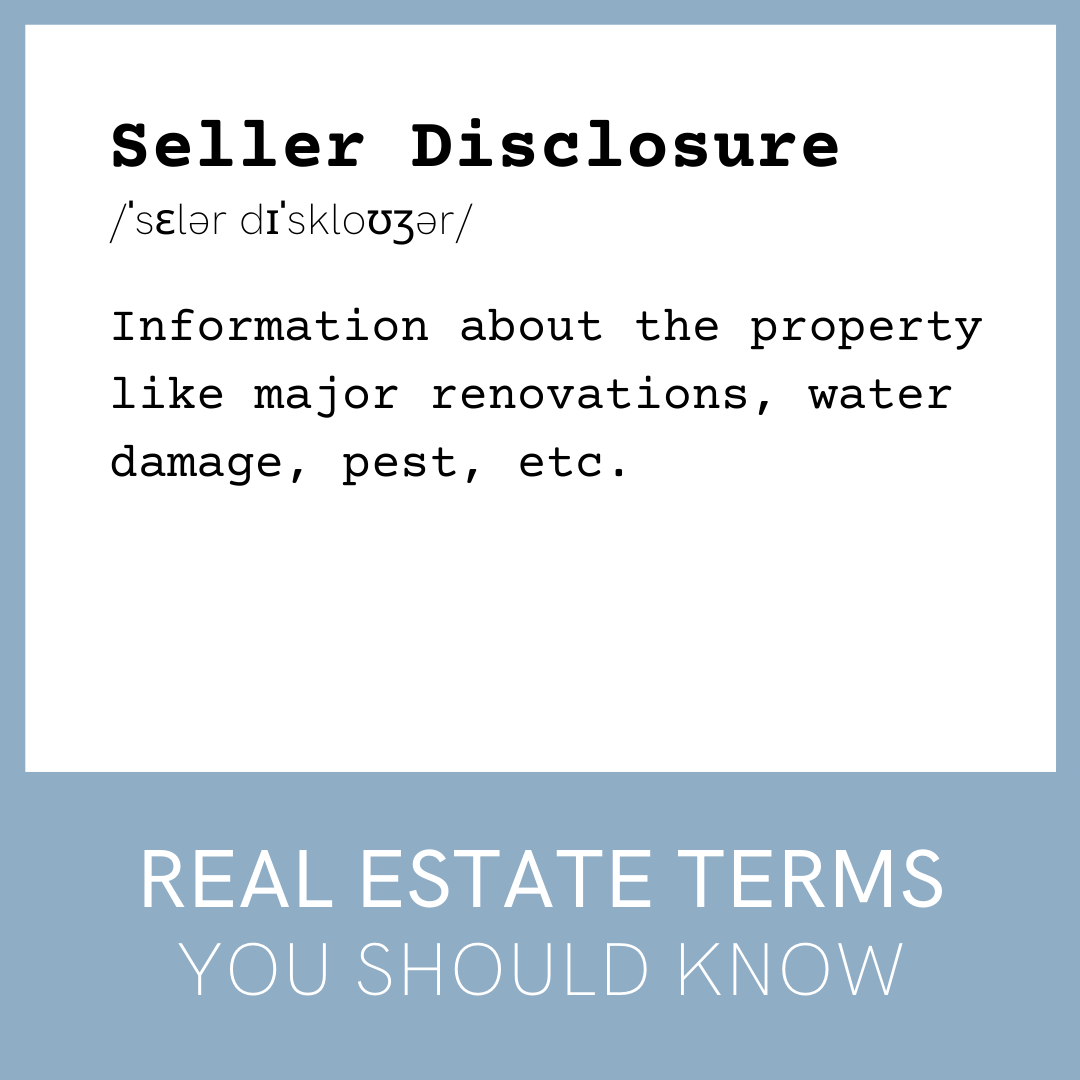
What is a Seller Disclosure?
A Seller Disclosure or Disclosures provide Information about the property about significant renovations, water damage, pest damage, etc.
The required disclosures vary by state, so be sure to talk about this with your agent.
Leave a Reply

What is a Settlement Statement?
A settlement statement, also known as a HUD-1, is a document that lists all the costs associated with buying or selling a home.
It includes the purchase price, loan fees, taxes, insurance, and any other costs that need to be paid at closing.
This document will be given to the buyer and seller at the closing of the real estate transaction.
Really good agents will also send you a copy of your HUD-1 right before tax time to make sure you take advantage of any tax-deductible expenses from the purchase or sale of your home.
Leave a Reply
Home Sellers

What is a backup offer?
When an offer is accepted contingent on the fall through or voiding of an accepted first offer.
Sellers may accept backup offers if they are not confident about the offer they have accepted.
Consider it a safety net for the seller if the current offer does not close.
There are also benefits for buyers.
Although it might seem like a long shot, putting an offer on a house that’s under contract actually has a reasonable chance of scoring you a home. Deals fall through for all kinds of reasons, so if you’re in the backup position, you’ll lock things in and keep a home from going back on the market.
As usual, discuss putting in a backup offer with your Realtor.
Leave a Reply

Close of escrow is the final step in the real estate transaction. It is when the buyer pays the seller for the property and all the documents are signed.
After close of escrow, the title deed is transferred to the new owner and the keys are given to the buyer.
The escrow company then sends the money to the lender and all the parties involved in the transaction.
Leave a Reply

Closing: The end of a transaction where documents are signed, and funds are dispersed.
Leave a Reply
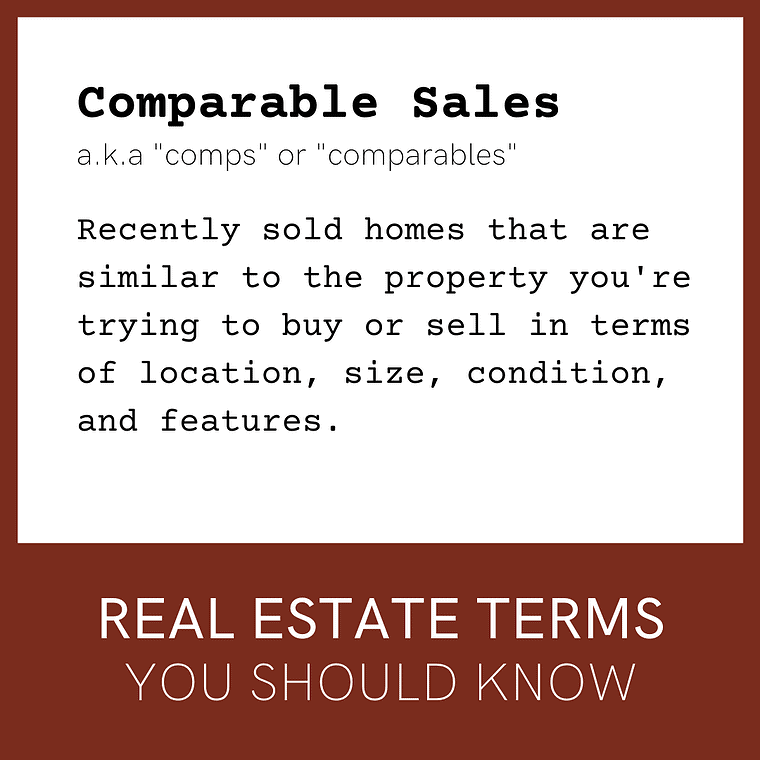
What are Comparable Sales?
Known in real estate as “comps,” comparable sales are the sales prices of similar homes and are based on the following:






When it comes to buying or selling, both place high importance on comps to determine a home’s value.
Contact our team for a 

Leave a Reply

In real estate, a contingent offer is an offer made on a property, which says that certain conditions must be met in order for the sale to be completed.
Leave a Reply

Conventional sale: When the property is owned outright and has no mortgage.
Conventional sales are often smoother transactions than those that require financing as there is no dependence on the buyer receiving a loan to purchase the property.
A conventional sale is not to be confused with a conventional loan. In this instance:
“Conventional” just means that the loan is not part of a specific government program. Conventional loans typically cost less than FHA loans but can be more difficult to get.
This may sound confusing, so just ask your Realtor to explain it to you if you’re not clear. ☺️
Leave a Reply

A counteroffer is a response to a buyer’s original offer on a house to make changes that better fit a seller’s goals.
A counteroffer is one step closer to an accepted offer!
A counteroffer shows that the seller is willing to work with the buyer, but on slightly different terms (usually a change in the price or contingencies).
Here’s how your real estate agent can help you navigate a counteroffer:
☑️ Buyers, we negotiate on your behalf and provide guidance on how to get your offer accepted.
☑️ Sellers, we help you stay clear of red flags and make sure you accept the right offer.
Negotiation is a BIG part of what we do as real estate pros! Connect with our team to learn more about how we provide 5-star representation for our clients.
Leave a Reply

Days on market (DOM) means the number of days a home has been listed on the market.
The number of days the property has been on the market may reflect the desirability and/or pricing of the home.
If the home has been on the market too long, the property may be stale.
Leave a Reply

What is a Disclosure Statement 🤔
Also known as a “Seller’s Disclosure,” this is a legal document that outlines any known flaws that a home seller is aware of that could negatively impact the home’s value 🏡
💡 TIP: Buyers should scrutinize this document closely with their real estate agent to fully understand the condition of a home.
Our best advice? When it comes to buying a home, make sure you get an inspection to confirm what has been disclosed is accurate and discuss any potential deal breakers with your agent.
Contact our team for a ✨ free consultation ✨ to learn more about what you must legally disclose if selling and how to ensure you don’t miss any important information if you’re buying!
Leave a Reply

The representation of opposing principals (buyers & sellers) at the same time.
That is, one real estate agent represents both the buyer and the seller in one transaction (sale of a home).
Leave a Reply

What is Earnest Money? 🤔
A deposit made to a seller that represents a buyer’s good faith to buy a home. It’s typically around 1% – 5% of the sale price.
Earnest money is a deposit from the buyer to the seller, made in good faith to show dedication to purchasing the property 🏡
IMPORTANT FACTS 👇
💰 The amount varies by market
💰 Goes towards the purchase of your home
💰 Protects the seller if a buyer backs out
💰 A buyer may get this money back – due to failed inspections or contingencies
💡 TIP: In a seller’s market, you may consider making your earnest money non-refundable.
Our best advice? When it comes to buying in a low inventory, competitive market, it’s essential to partner with a Buyer’s Agent who understands how to make your offer stand out to sellers 🥊
Leave a Reply

What is an escalation clause?
An escalation clause is a clause in a real estate contract that allows the purchase price of a property to increase if a certain condition is met.
For example, if the buyer and seller agree to an escalation clause and the market value of the property increases, the buyer will have to pay more for the property than originally agreed upon.
This clause is typically used when two buyers are competing to purchase the same property.
Leave a Reply
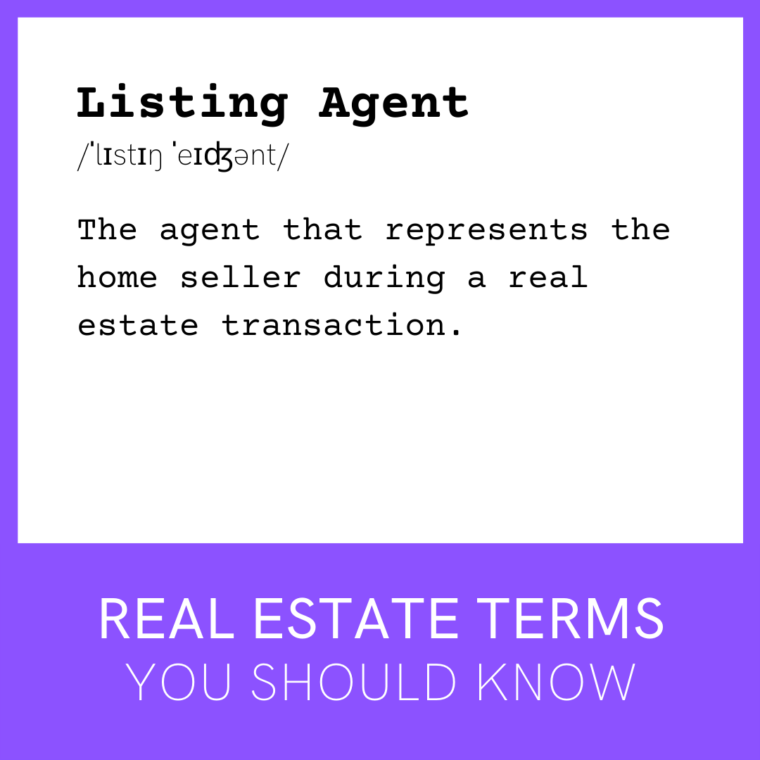
What is a Listing Agent?
The real estate agent who represents the home seller during a real estate transaction.
Leave a Reply

What is the market value of a home?
The highest price in terms of dollars that a property will bring in a competitive and open market.
Leave a Reply

What are Natural Hazards Disclosure Reports?
Natural hazards disclosure reports are reports that tell potential buyers about any natural hazards near a property.
These hazards can include things like flooding, earthquakes, and wildfires.
The report will also include information about potential risks associated with these hazards and what the buyer can do to protect their property.
The report is usually provided by the seller before the sale is finalized.
Leave a Reply

What is an offer to purchase?
Typically just an “offer”, is when a buyer proposes certain terms and presents these terms to the seller.
When you make an offer on a house, you and your agent will discuss the terms of your offer and submit the offer to the home seller’s agent.
Your offer may be accepted, or rejected, or the seller may submit a counteroffer.
Leave a Reply
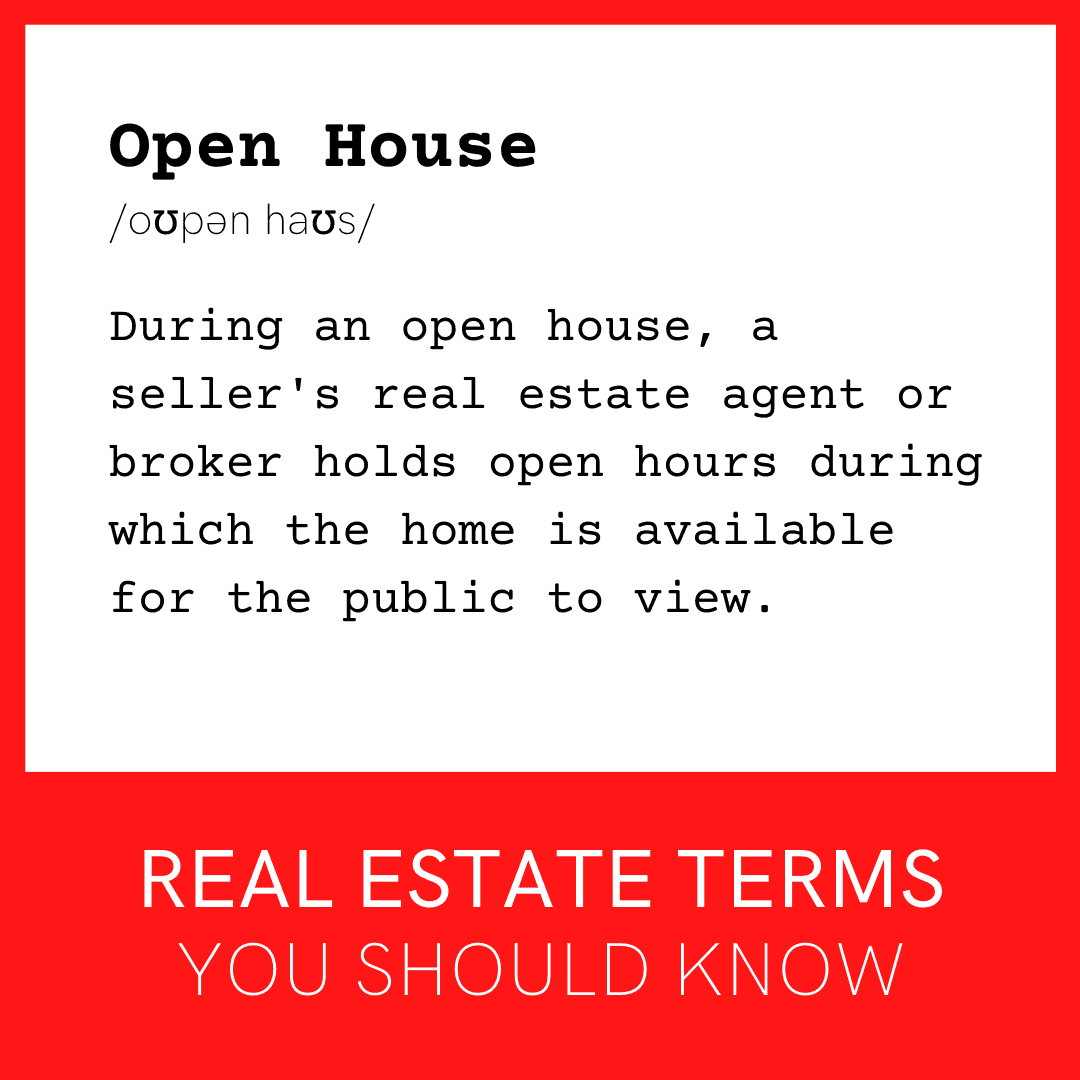
What is an Open House?
During an open house, a seller’s real estate agent or broker holds open hours during which the home is available for the public to view.
Potential buyers may drop by anytime within the scheduled hours, without an appointment, to look at the house.
You’ve probably seen real estate signs on the corner promoting an open house. These typically are seen on the weekend.
The seller’s agent may also add the home to a Brokers’ Tour.
A brokers’ tour is a regularly scheduled weekly event hosted by brokers for brokers featuring newly active properties in an “open house” format. It provides Realtors the opportunity to visually inspect properties included in the tour and to gain first-hand knowledge of them. – SF Gate
Leave a Reply

What is a Purchase and Sale Agreement?
Often just a “purchase agreement”, it is the written contract between the buyer and seller that outlines the terms of the sale.
The completion and signing of a purchase agreement effectively places both the buyer and seller (as well as the property in question) “under contract.”
Does a real estate purchase agreement need to be notarized?
No, a real estate purchase agreement does not require notarization to be valid as it is not filed with county records.
Leave a Reply

What are seller concessions?
They are incentives to motivate buyers to purchase a home.
Seller concessions, also known as seller contributions or seller-paid closing costs, refer to financial incentives that a home seller may offer to a homebuyer to help them cover some of the expenses associated with buying a home.
These concessions are typically negotiated as part of the sales contract and can take a variety of forms, such as paying for some or all of the buyer’s closing costs, providing a credit toward the buyer’s down payment, or offering to pay for repairs or improvements to the property.
Leave a Reply

What is a Seller Disclosure?
A Seller Disclosure or Disclosures provide Information about the property about significant renovations, water damage, pest damage, etc.
The required disclosures vary by state, so be sure to talk about this with your agent.
Leave a Reply

What is a Settlement Statement?
A settlement statement, also known as a HUD-1, is a document that lists all the costs associated with buying or selling a home.
It includes the purchase price, loan fees, taxes, insurance, and any other costs that need to be paid at closing.
This document will be given to the buyer and seller at the closing of the real estate transaction.
Really good agents will also send you a copy of your HUD-1 right before tax time to make sure you take advantage of any tax-deductible expenses from the purchase or sale of your home.
Leave a Reply

What is a Listimate™?
A Listimate™ is a home value estimate based on our proprietary system of determining a home’s value, or the dollar value of a home if listed for sale at the time of the estimate.
We created this system based on over 30+ years of experience in retail residential real estate resale properties.
We consider Listimates™ as the true current market value of a specific property. If you decide to list your home with Guthrie Group Homes, your Listimate™ will be the price we recommend you use as the asking price for your home.
How is a Listimate™ different from Zillow’s Zestimate?
We suggest you read our article “Comparative Market Analysis vs. Zestimate“.
How Accurate Is It?
Our track record speaks for itself. 99% of our listings sell at or above the asking price, and they sell fast!






Leave a Reply